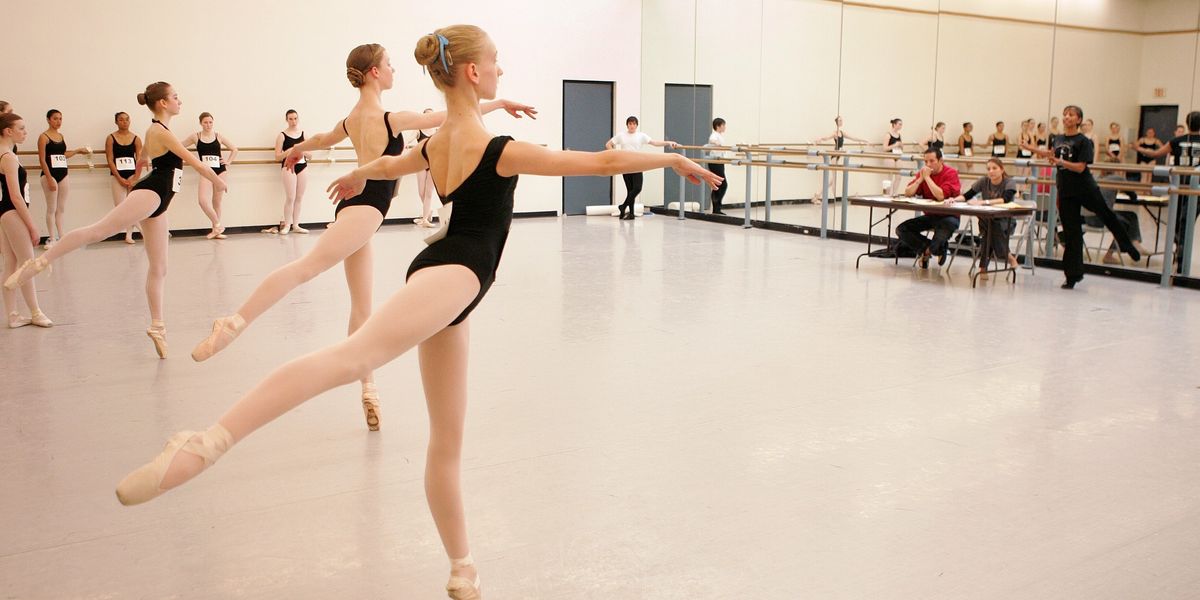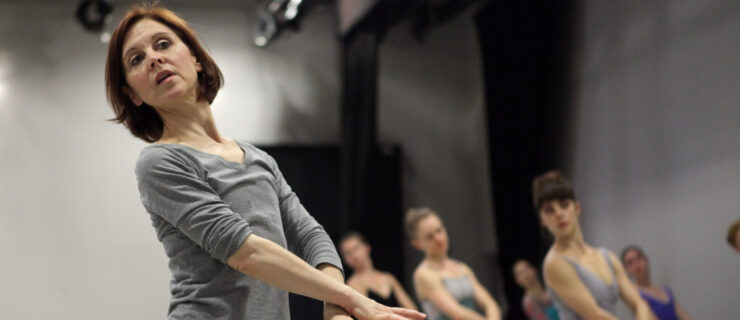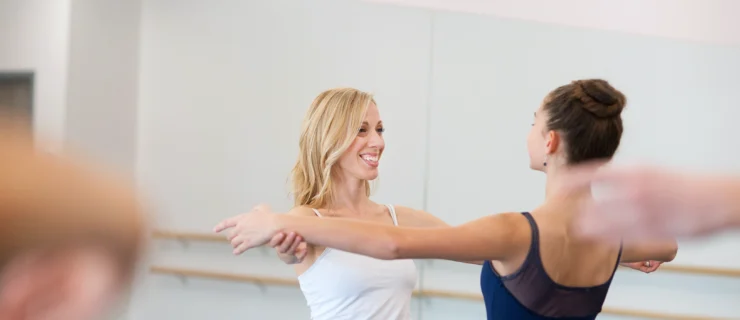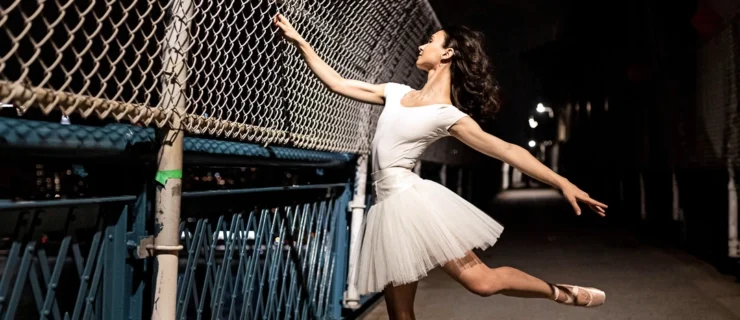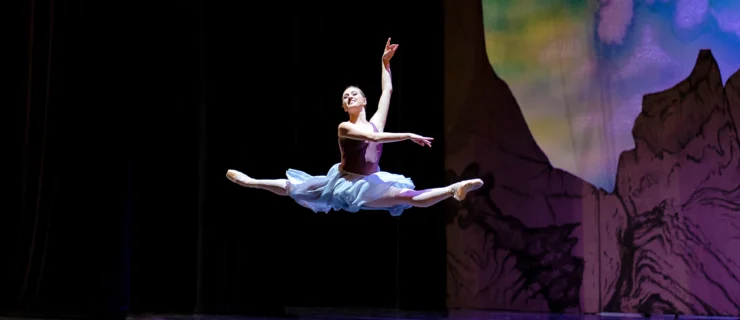No Big Deal: Don't Let Nerves Sabotage Your Summer Intensive Audition
This story first appeared in the December 2012/January 2013 issue of
Pointe.
At 15 years old, Elizabeth Murphy gave herself an assignment: Get accepted for summer study at Pacific Northwest Ballet School. Then a student at The Rock School for Dance Education in Pennsylvania, she traveled to New York to audition.
It did not go well. “I did a développé side, the simplest thing, and just toppled over,” she remembers. “I fell again in a pirouette combination—consecutive turns from fifth. And again, during a traveling combination. At first, they were concerned, but I really knew it was bad when they weren’t even worried about me anymore. ‘Oh, that girl fell again.’ I look back now and just laugh at myself. It was probably the worst class I’ve ever taken.”
She was devastated, and skipped PNB’s audition the following year. But as time passed, Murphy came to realize the mistake she’d made: “I was thinking, ‘I need to be perfect.’ And if you have ‘perfect’ as your goal, that’s a lot harder to achieve than just doing your best. Going for more than you’re capable of can hurt you.”
Now 23, Murphy can say with confidence that she’s learned how to beat her nerves. Oh, and she’s now a corps member at Pacific Northwest Ballet.
All dancers agree: Auditions are tough. They’re also unavoidable. “No matter how good you are, this is a skill you need if you want a career in ballet,” says Allison Walsh, 27, of BalletX in Philadelphia. “There are a lot of beautiful dancers who just don’t make it because they don’t audition well.” For most dancers, chances are good that their first major audition experience will be for summer study. For many students, these programs mark the point in their training where a pastime becomes a passion. And the outcomes of the auditions are often students’ first measure of how their talent stacks up nationwide.
Which Strategies Work?
So, how do you handle the anxiety that comes with that pressure? First, recognize that any audition will be stressful, and the more you want the opportunity, the more nervous you’ll probably be. And that’s okay: Feeling slightly hyper might actually help you. Adrenaline can translate into productive energy as long as you know how to harness it so it powers you toward your goal, not away from it. Think of the challenge as something to be excited about, rather than something to fear.
To get into that mental zone, you’ll need to avoid any outside distractions. Murphy packs her bag the night before with extra supplies and shoes. “You’ve got to prevent little situations from throwing you off,” she says. Get plenty of rest, eat a good breakfast, know exactly where you’re going and arrive early. Walsh admits that, when she needs an extra boost of self-confidence, “I’ll call my mom and have her say something nice to me.” She laughs. “That’s always helpful.”
There’s no rhyme or reason to which stomachs get butterflies, when or why. Kay Mazzo, co-chairman of faculty at the School of American Ballet, notes that “some people are never nervous, no matter what age.” At auditions, she tries to calm the room by offering a little inside information. “I start off by telling them that I did the same thing—I auditioned at their age,” she says. “Think of this as just a class you’re taking that might be a little different from what you’re used to. But the teacher isn’t expecting you to grasp everything she’s telling you.” Mazzo remembers clearly the audition she took for SAB as a Chicago ballet student at age 11. “Madame Antonina Tumkovsky gave a brisé. And I raised my hand and said, ‘I’m sorry, but I don’t know what that is!’ She said, ‘That’s alright. You don’t have to do it.’ That’s still true for young dancers. Something like that will never be a reason why we wouldn’t take a dancer.”
Frances Chiaverini, 31, and an inaugural member of Benjamin Millepied’s new company, Los Angeles Dance Project, says that auditioning is 90 percent psychological. “It’s hard to be objective about something you hold so close to your heart,” she says. “But we’re all different and we all offer different things. That can help with the feeling that you’re up against everyone else in the room. For me, it’s better to think of auditions as workshops or master classes, a chance to expose yourself to something new.”
This approach also helps the process feel more like a two-way street, with both parties searching for a good fit. Mazzo says students who audition for SAB’s summer program “should look at the kind of class we’re teaching and consider whether or not it’s right for you. Ask yourself, ‘Do I like this? Is this for me?’ ” Chiaverini points out that it’s important to remain rational and realistic when asking yourself these questions, and to ask them for the right reasons. “Don’t reject first as a defense mechanism.”
Who Succeeds at Auditions?
Dr. Steve Julius (who’s affectionately referred to by his clients as “Dr. J”) is a former team psychologist for the Chicago Bulls. For more than 25 years, he’s helped professional athletes, figure skaters and Cirque du Soleil artists overcome performance anxiety. “Athletes and performers who do the best are the ones who can keep their egos under control,” he explains. “They don’t focus on the outcome. They remind themselves that this game, or this audition, is the same thing they’ve done a thousand times before.”
Yet the extra pressure of an audition can make the familiar seem foreign: You might find yourself second-guessing your abilities during combinations that are smack dab in the middle of your comfort zone. In these moments, hold on to what you love about dancing and approach each step one at a time—calmly. And remember to breathe. “When we’re looking at athletes for the Bulls during the college draft, we’re looking not just for their drive, but for their love of the game itself,” says Julius. “We want the kinds of players who just relax when they hear squeaky sneakers and the pounding echo of the basketball on the floor. In dancers, those are the people who can literally lose themselves in the music, in dancing with others. And that’s the difference between performers who consistently succeed and those who are great behind closed doors but seem to melt in front of an audience.”
And if it still ends up being the worst class you’ve ever taken? Remember that you can’t control the outcome, says Julius. “What you can control is your focus. Be in the moment. Love the experience, because that’s why you’ve sacrificed so much for it.”
Once You Pin on a Number, Remember:
1. Don’t be afraid of your nerves. Let the adrenaline boost your energy and sharpen your focus.
2. The teacher isn’t expecting perfection; she’s looking to see how you handle challenges.
3. Good auditioners are the ones who can forget about what’s at stake, and lose themselves in the movement.
